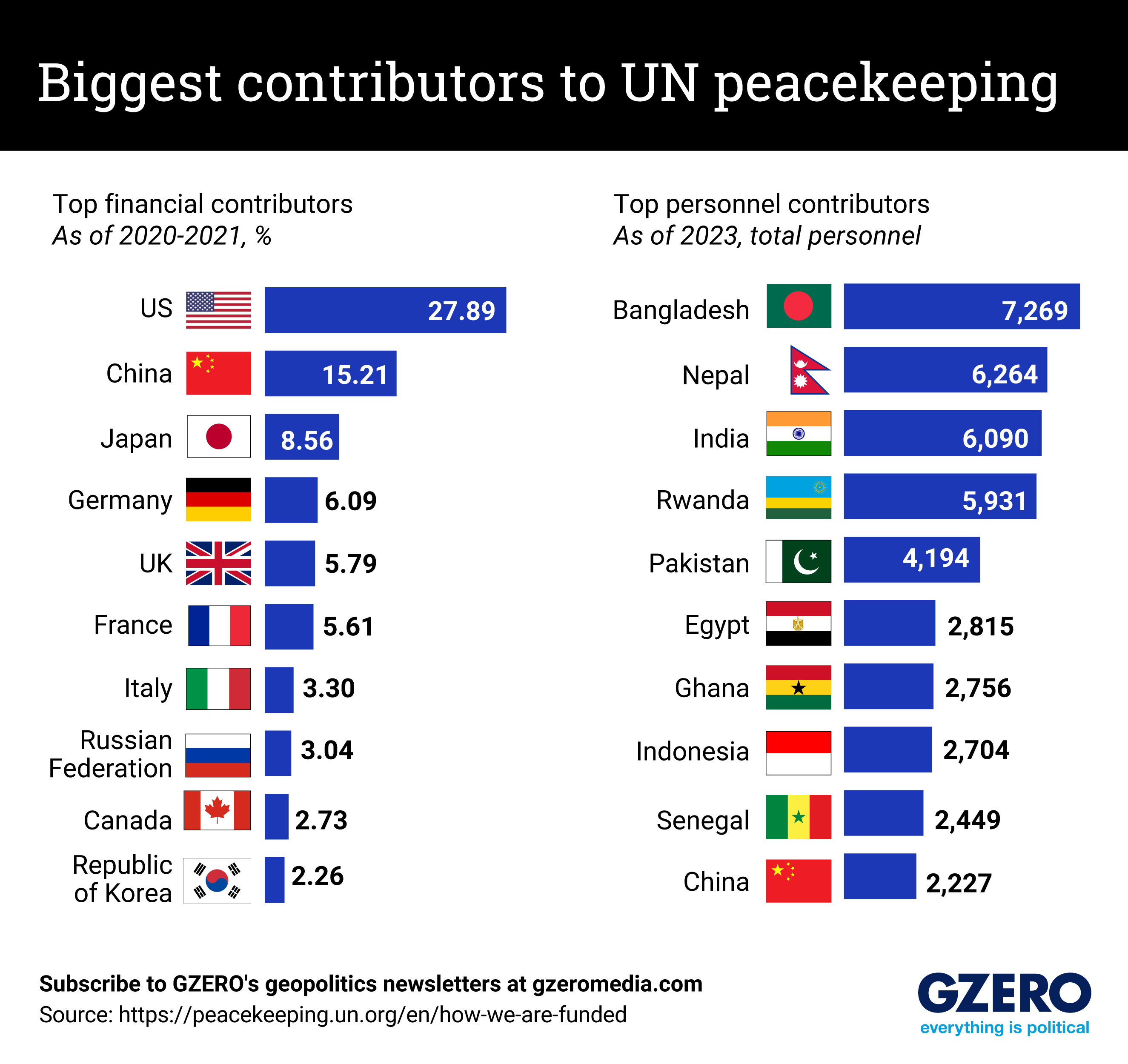September 26, 2024
UN Peacekeeping is all about helping countries navigate the often rocky transition out of violent conflict, with the hope of laying the groundwork for a lasting peace. For over 70 years, peacekeepers have been deployed around the world to help maintain security, protect civilians and human rights, and oversee peace processes. There are currently 11 active peacekeeping missions around the world.
Canada played a central role in the early development of UN Peacekeeping. In 1957, Canadian Secretary of State for External Affairs Lester B. Pearson was awarded the Nobel Peace Prize for his vital role in establishing a UN Emergency Force that helped resolve the Suez Crisis of 1956 in Egypt.
UN Peacekeeping is financed by UN member states — and has a budget of roughly $6.4 billion — with countries like the US, China, and Japan among the top financial contributors. Meanwhile, the biggest contributors of personnel to UN Peacekeeping are Bangladesh, Nepal, and India. Do you think UN Peacekeeping is worth all that goes into it? We’d love to hear from you!More For You
FILE PHOTO: Canadian Prime Minister Mark Carney and India's Prime Minister Narendra Modi shake hands before posing for a photo during the G7 Leaders' Summit in Kananaskis, in Alberta, Canada, June 17, 2025.
REUTERS/Amber Bracken/File Photo
Indian Prime Minister Narendra Modi and Canadian Prime Minister Mark Carney struck a series of deals during a meeting in New Delhi on Monday, including a 10-year nuclear energy deal under which Canada will provide India with uranium.
Most Popular
The US and Israel have launched a series of strikes against Iran at a moment when the Islamic Regime is at its weakest. Ian Bremmer spoke with Iran expert Karim Sadjadpour in Munich earlier this month to understand the choices the regime and population are facing.
- YouTube
With US forces building up in the Middle East, Trump is betting military pressure will force Iran to bend. Will this turn into a full-scale conflict?
- YouTube
Are we still talking. #PUPPETREGIME
© 2025 GZERO Media. All Rights Reserved | A Eurasia Group media company.
